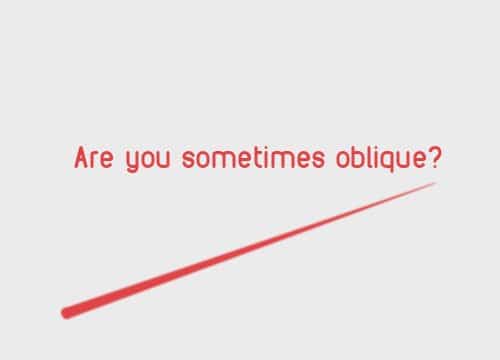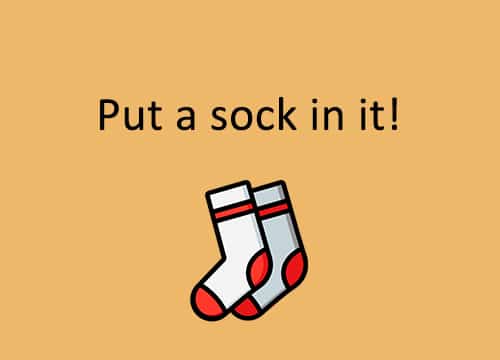Perhaps. “Oblique” (oblicuo) has many uses and meanings. The noun is “obliqueness” (oblicuidad) and the adverb is “obliquely”.
First, a medical use for those of you who are doctors and nurses. Mortals have oblique muscles and can have oblique bone fractures. Here are 2 examples:
- The doctor has identified oblique fractures in the arm (…ha identificado fracturas oblicuas…).
- I damaged an oblique muscle yesterday (… me dañé un musculo oblicuo…).
Triangles have oblique angles. Lines can be oblique (oblicuas), parallel or perpendicular. The letter “k” has 2 oblique lines, or part of the letter has 2 angled lines (ángulos oblicuos).
An example:
- The teacher drew an oblique line (… dibujó una línea oblicua…) on the blackboard.
Sometimes people make “oblique references” (referencias indirectas) to things or other people. This means that the person is neither speaking frankly (francamente), nor simply, and is guilty of circumlocutions (circunloquios).
Some examples:
- Mr. Sánchez, the Spanish Prime Minister, has made oblique references (referencias indirectas) to higher taxes in 2022. He spoke obliquely (oblicuamente) about the issue.
- Do not be oblique! (¡no seas oblicuo!). Another way to say this is “get to the point” or “do not beat around the bush” (no te andes por las ramas)
- Mr. Podemos made oblique references to the King of Spain in his speech in North Korea.
So, are you sometimes oblique, speaking obliquely about important things? Does your obliqueness annoy others? Are you sometimes guilty of circumlocutions?











